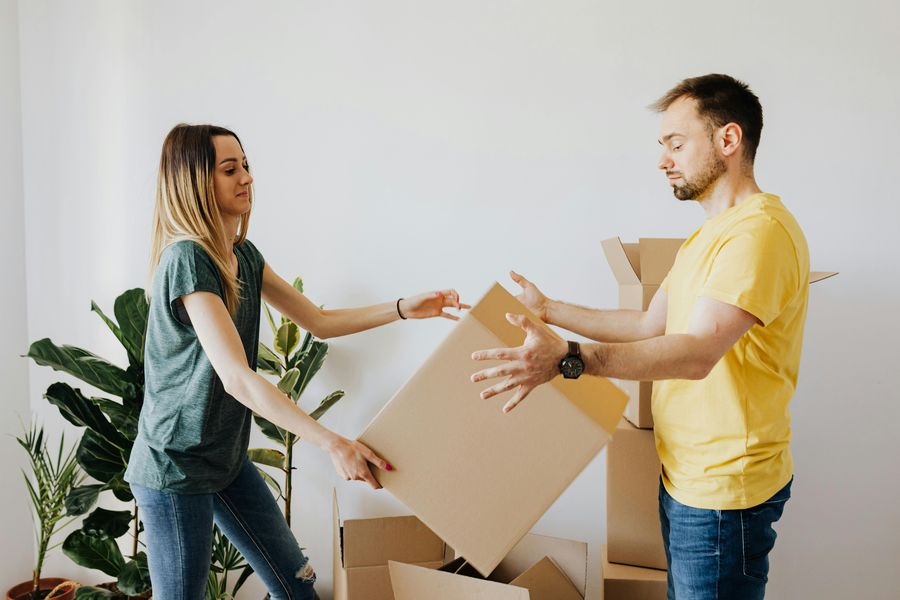Staying Connected During Self-Isolation
If you’re feeling cooped up and lonely during this period of self-isolation, know that you’re not alone. Many of us are experiencing feelings of anxiety, restlessness, and isolation.
But staying connected with loved ones and maintaining a sense of normalcy can go a long way in helping you cope with these challenging times. Here are some tips to stay connected during self-isolation:
Use Technology to Your Advantage
With the advent of technology, it’s easier than ever to stay connected with loved ones. Whether it’s a simple phone call or a video chat, technology can help bridge the distance between you and your friends and family.
Make use of apps like Skype, Facetime, Zoom, Whatsapp, or Facebook Messenger to stay connected. Schedule regular video calls with friends and family to help maintain a sense of social support.
Make a point to check in on those who are vulnerable to loneliness or isolation, like the elderly or people with disabilities.
Switch Up Your Communication Methods
While video calls are a great way to stay connected, mix it up by texting, messaging, or emailing to break the monotony. It’s easy to rely on the same old way of communicating with people, but trying out different ways can freshen things up and provide a new perspective.
Establish a Routine
It’s essential to establish a daily routine that covers the basics of self-care, including regular exercise, proper nutrition, good sleep habits, and stress management. A daily routine will help you break the monotony of self-isolation and provide a sense of purpose.
Incorporate hobbies into your routine, as well, like painting, drawing, or reading. Use this time to reconnect with yourself and prioritize self-care.
Limit Your Media Intake
While it’s essential to stay informed about the current situation, excessive media consumption can fuel anxiety and stress. Be mindful of how much news you’re watching or reading and limit your media intake if it starts to interrupt your mental health.
Instead, consider listening to music, watching movies, or reading books that give you a sense of peace or enjoyment.
Find Alone Time
While we’re all seeking ways to connect, it’s important to understand that it’s okay to need alone time, as well. Take breaks for meditation, yoga, or just relax and enjoy some quiet time.
Find calming and grounding routines like deep breathing exercises to relax and destress yourself.
Visit Virtually
It’s easy to feel like you’re all alone in this, but several zoos, museums, and art galleries offer virtual tours that you can take from the comfort of your own home. Visit zoos around the world, explore the galaxy, or view some of the most iconic paintings.
Use this interactive platform to connect and enrich yourself.
Engage in Shared Activities
It’s important not to forget the importance of shared activities with others. Whether it’s online cooking classes, virtual book clubs, or online game nights, these shared activities can help you stay connected and give you a sense of normalcy.
Be Creative
Get creative and try new things. Whether it’s cooking a new recipe or writing a poem, creativity can provide a healthy outlet for your emotions while also helping you feel more fulfilled.
Seek Help
If you’re struggling with feelings of isolation, loneliness, or anxiety, know that help is available. Many therapists and mental health providers are now offering teletherapy services.
Don’t hesitate to reach out and seek help if you need it. In conclusion, self-isolation can be challenging, but staying connected with loved ones and maintaining a sense of normalcy can go a long way in helping you cope.
Use technology to your advantage, switch up your communication methods, establish a routine, limit media intake, find alone time, engage in shared activities, be creative, and seek help if you need it. We’re all in this together, and together, we can come out stronger.
Scheduling Social Time
Working from home has become the new normal for many individuals due to the current global situation. Being able to work from home provides flexibility, but it also comes with its own set of challenges.
Socializing with friends and family can have a positive effect on your mental health, but it can be hard to find the time to do so while juggling work and personal responsibilities. Here are some tips for finding a balance between your work and social life.
Balancing Personal and Work Life
Working from home comes with its own set of challenges, including the constant availability to attend work-related tasks. It can be tempting to work extra hours since you’re not bound by traditional office hours, but it’s crucial to make time for personal and social obligations.
Make sure you set clear work hours and communicate them with your colleagues and managers. It can help, for example, if you routinely set your “out of office” message on your emails outside of working hours so that colleagues will understand.
Making Time for Socializing
Socializing with loved ones has become more challenging due to social restrictions, but it’s still vital to maintain social ties. Scheduling regular catch-ups can help you feel more connected and improve your mental health.
Use online planners or scheduling apps to schedule calls or video chats with friends and family, as scheduling can help ensure the get-togethers actually happen. Make it a point to prioritize social time in your daily or weekly routine.
Switching Up Screen Time
With the amount of screen time we have today for work and socializing, it can be easy to fall into a routine when communicating with others using the same method, or watching the same TV shows. Switching up communication methods and finding new online communities can help you find a balance between work and social life and add spice to your daily routine.
Trying Different Communication Methods
With the abundance of communication apps and tools, there’s no excuse not to switch up how you communicate with your friends and family. Send a handwritten letter or card in the mail, try out a new video conferencing platform, or organize a Netflix party to watch movies together with friends in different locations.
Trying something new can help you feel more connected and add excitement to socializing.
Joining Online Hobby Communities
Hobbies are a great way to unwind after a long day or to take a break from work. Joining online hobby communities, such as online book clubs, virtual wine tastings, or online gaming communities, can help you find like-minded individuals and make new friends.
Join Amazon’s Book Club or participate in a cooking class over zoom or Google Meet. There are many virtual communities out there, each with its own set of activities and events, so go out and explore.
In conclusion, socializing is a crucial part of maintaining good mental health, even when working from home. Scheduling time for socializing and switching up your communication methods and hobbies can help you maintain the right balance between work and personal life.
Remember to be flexible, be open to trying new things, and prioritize taking care of your mental health.
Keeping Active
As self-isolation becomes the new norm, many of us have started to adapt to new lifestyles, including working from home and limited outdoor activities. Staying active and maintaining a routine is essential for our physical and mental well-being.
Here are some tips for staying active and building a routine while stuck at home.
Importance of Exercise
It’s essential to stay active, even when you can’t leave your home. While exercise is good for our physical health, it also has a positive impact on our mental health.
It can help increase our energy levels, reduce stress, and improve mood. Keep in mind that regular moderate activity is better than occasional high-intensity workouts, especially when starting an exercise routine for the first time.
Incorporate activities into your daily routine that you enjoy, such as dancing, yoga, or a brisk walk in the morning sun.
Options for Staying Active at Home
With the closure of gyms and fitness centers, you may wonder how you can continue your workout routine at home. Fortunately, there are plenty of options available to stay active and healthy at home.
Attend online group fitness classes, follow a series of YouTube workout routines, or create your own personal routine that includes activities you enjoy, such as yoga or strength training. Use household items like cans, books, or water bottles for weights to make exercise more challenging.
Maintaining a Routine
Stability and a sense of normalcy are essential when dealing with uncertainty and change. One of the best ways of achieving routine is to plan and develop daily habits.
Breaking the rut of uncertainty can help you stay positive and focused during self-isolation.
Importance of Routine During Self-Isolation
When you’re isolated from the outside world, it’s essential to stick to a routine to maintain stability. A daily routine establishes a sense of control and purpose, which can help reduce anxiety and improve mood.
Schedule your day according to your life’s different components, such as work, exercise, meals, free time, and sleep. Set reminders and stick to a schedule that allows for the flexibility of your current lifestyle.
Creating a Routine That Works for Your Current Lifestyle
When it comes to creating a routine, it’s crucial to avoid overplanning your day and neglecting flexibility. A healthy routine is one that is adaptable to your current lifestyle and supports your goals and values.
Start by listing your daily responsibilities and make time for the essential aspects of your life, such as self-care and family time. Establishing boundaries between personal and professional life is critical when working from home to maximize productivity.
In conclusion, staying active and maintaining a routine can be challenging during self-isolation, but it’s essential for our physical and mental well-being. Incorporating exercise into your daily routine, attending virtual fitness classes, finding a workout buddy, and developing a personalized routine that establishes stability is key to keeping your daily-life energized and motivated.
Remember to find a balance between flexibility and structure while creating your routine and prioritize self-care.
Limiting Media Intake
With the constant news coverage and rumors spreading about the current global situation, it’s challenging to keep up without feeling overwhelmed or anxious. It’s essential to prioritize your mental health by limiting your media intake and focusing on positive topics.
Here are some tips for limiting media intake and giving yourself alone time.
Reducing Negative Exposure
While it’s important to stay informed about the current situation, constant media exposure can have a negative impact on our mental health. It’s easy to fall into the trap of consuming news that focuses on negative developments, which can lead to feeling overwhelmed and anxious.
It’s essential to reduce negative exposure to media and rumors. Limit your news intake, be mindful of the news sources you choose, and avoid rumors and negative conversations.
Focusing on Positive Topics
It’s essential to focus on positive topics to keep a positive outlook on life. Talk with friends and family about positive topics, share uplifting stories and memes online, and take time to appreciate good things in life.
Express gratitude and share it with others to increase your feeling of well-being and encourage others to do the same. Read books, watch movies, and participate in hobbies you enjoy to distract yourself from negative news cycles.
Giving Yourself Alone Time
Personal space is essential for self-care, even in relationships. Spending time alone can help you recharge, reflect, and destress.
Alone time can include self-care activities like meditation, art, or writing. Allocate some time during the day to have alone time and use it in self-care activities that work for you.
Take time to reflect on your goals and topics that interest you. This way, you can recharge yourself before going back to work or other social activities.
Staying Connected Without Constant Communication
While it’s essential to stay connected with friends and family, it’s also essential to recognize the importance of alone time. Overcommunication can lead to feeling overwhelmed and anxious.
It’s important to find balance between staying connected and giving yourself some time away from constant communication. Create boundaries by scheduling specific times for communication or limiting connection time per day.
Send a quick message or call a few times a week to keep relationships lively while respecting each other’s needs for alone time. In conclusion, it’s essential to prioritize mental health by limiting negative media exposure and focusing on positive topics.
Give yourself alone time and recharge by doing activities that help you relax and reflect. Stay connected with friends and family while finding balance between communication and alone time.
It’s important to remember that taking care of yourself is a vital part of your well-being and growth.
Virtual Zoo Visits
Visiting zoos and wildlife preserves are some of the most popular outdoor activities, but due to current restrictions, it has become challenging to visit zoos and wildlife sanctuary. Fortunately, some zoos are opening their virtual doors, providing viewers with the opportunity to see animals and nature from the comfort of their homes.
Opportunity to See Animals
Many of us may not have the opportunity to visit a zoo in person, but thanks to technology, we can experience the beauty of these animals through virtual visits and animal live-streams. Seeing animals in real-time via livestreams can provide a sense of peacefulness and a connection to nature, which is especially helpful when dealing with feelings of loneliness or isolation.
Zoos Opening Their Virtual Doors
Many zoos across the world have started to offer virtual tours and live streams to connect with the public. Through these virtual tours and live-streams, they provide a more in-depth look at the lives of their animals and behind-the-scenes access to the zoo operations.
Technology has allowed zoos to open their virtual doors to sprawling landscapes, and visitors can see animals up close in their natural habitats.
Sharing Activities
Amid the pandemic, shift conversations away from the constant pandemic talk and onto something more uplifting and entertaining. Participating in shared activities can strengthen connections and provide a sense of normalcy to those who miss socializing with friends and family.
Shifting Away from Pandemic Topics
With the ongoing pandemic, it’s easy to be anxious and worried about everything happening around the world. Sharing activities provide us with a way to engage in leisure activities that can lower our stress levels and shift our focus from pandemic-related topics.
Participating in Shared Hobbies with Friends or Family
Shared hobbies are one of the best ways to connect and spend time with friends and family. A shared hobby could be anything from painting and drawing to puzzles and juggling.
Join online communities focused on shared interests or have virtual game nights with friends, providing a chance to socialize while doing something fun together. In conclusion, virtual zoo visits and shared activities are an excellent way to stay entertained and socially connected while staying safe.
Watching livestreams and virtual tours provide an opportunity to escape reality, connect with nature, and learn about exotic animals and their lives. Shared activities such as hobbies, streaming movies together, and participating in virtual book clubs help create bonds, sharpen emotional connections, and provide emotional support during times of isolation.
Embracing these new forms of entertainment and socializing can benefit your physical and emotional wellbeing in the long run.
Staying Creative
Staying connected with friends and family during self-isolation can be challenging, but creativity can be one of the best ways to make it happen. It’s vital to find new and exciting ways to connect and stay entertained while keeping our minds active.
Importance of Creativity in Staying Connected
Staying connected through creativity allows us to add a personal touch to communication. Creative communication helps build stronger relationships and allows us to stay connected with loved ones despite the distance.
Be creative
Here are some ideas:
- Send a personalized video message to a loved one.
- Create a collaborative online art project with friends.
- Write a poem or song about your experience during self-isolation.
- Start a virtual book club with friends and discuss your favorite books.
- Learn a new skill together online, such as cooking or painting.
Being creative can be a great way to express yourself, stay connected with others, and stay entertained during self-isolation.



